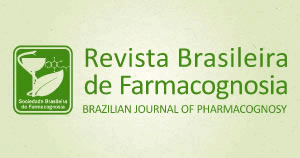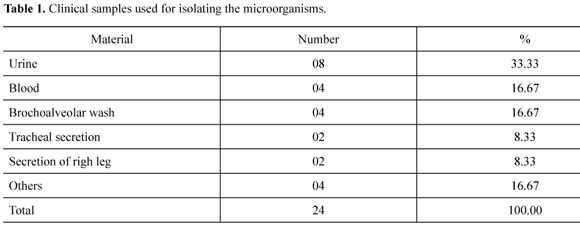Antibiotics are considered the main therapeutic option to treat bacterial infections; however, there is the disadvantage of increasing bacterial resistance. Thus, the research of antimicrobials of plant origin has been an important alternative. This work aimed at determining the in vitro antibacterial activity of the essential oil of Origanum vulgare L. (Lamiaceae) on multiresistant bacteria isolated from biological materials. 24 strains of nosocomial bacteria were used and divided into six different species that were inhibited by the essential oil in the preliminary "screening" which was accomplished by the diffusion technique in agar. MIC was determined by the microdilution method, beginning with solutions with the final concentrations: 8 up to 0.125% with the following results: The four samples (100%) of Escherichia coli, Enterococcus faecalis and MRSA were inhibited by the essential oil at the concentration of 0.125%. Three samples (75%) of Acinetobacter baumannii at 0.125% and a sample (25%) at 0.5%; Klebsiella pneumoniae (75%) at 0.125% and 25% at 0.25%; Pseudomonas aeruginosa (75%) at 0.5% and 25% at 0.25%. MIC varied from 78 to 83%. It was concluded through the obtained data that there was not difference in the minimum bactericidal concentration (0.5%) of the referred oil for Gram positive as well for Gram negative microorganisms.
Origanum vulgare; bacterial infections; multiresistant bacteria


